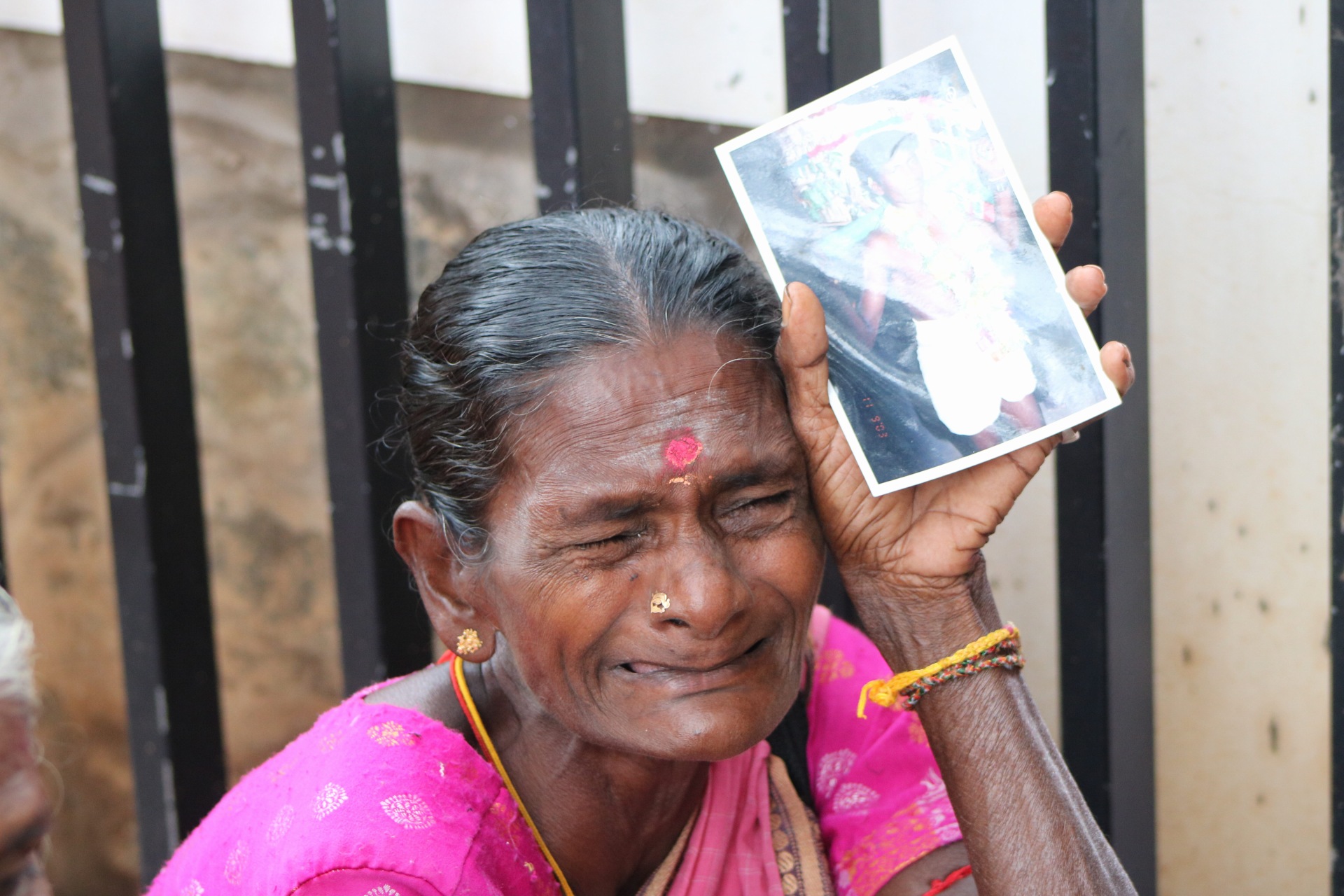
Sri Lanka’s Office of Missing Persons (OMP) called for 20 documents from Tamil families of the disappeared last month, stating it was apparently required “to search” for their disappeared loves ones, despite having been in operation for several years.
The call for documents comes after many Tamil families co-operated with the government mechanism despite their wariness that this was to be another façade by the state and a move to obfuscate accountability for the enforced disappearances.
‘Missing Persons’

A father of a disappeared Tamil man searches through his documents in Kilinochchi. 2017
The letter from the OMP states the request for additional information is because the material already submitted by applicants is insufficient. The OMP requests these documents from displaced families, that lost all their possessions at the end of the country’s civil war in May 2009 amidst artillery fire and shelling.
Journalists for Democracy in Sri Lanka (JDS) noted the OMP’s request said “missing person,” whereas the families of the disappeared have maintained over 1600 days of protest that their loved ones are subjects of an “enforced disappearance.”
Sri Lanka has the second-highest number of cases registered with the United Nations Working Group on Enforced or Involuntary Disappearances, with Gotabaya Rajapaksa being implicated in white van abductions of government critics. An estimated 100,000 people have been forcibly disappeared. Whilst such disappearances affect all communities on the island, the vast majority of victims, particularly during the final phase of the war, were Tamil.
Death certificates
Rajapaksa met with UN Secretary General Antonio Guterres in September, when Sri Lanka’s President and accused war criminal, Gotabaya Rajapaksa claimed he would take “immediate action” to address the issues of enforced disappearances that such efforts would include expediting the issuance of death certificates.
JDS reported that the Sri Lankan state is seeking, “to persuade the families to accept death certificates” which, “could be used by the OMP or the government to stop searching for the person.” However, the JDS highlighted, “it could also help avoid bringing perpetrators of the disappearance to justice.”
Many families have refused to accept death certificates as they had, “surrendered their loved ones to the military [...] before the person disappeared” thereby they demand the government either, “produce the disappeared person” or disclose their location.
If families were to accept the death certificates, the government could declare they were willing to accept the disappeared person was deceased, which would absolve the state of the responsibility of bringing perpetrators to justice. The Rajapaksa regime, accused war criminal and army commander Shavendra Silva and others are among many senior politicians and military officers accused of war crimes.
State Accountability
In September, the UN High Commissioner for Human Rights, Michelle Bachelet told the Human Rights Council, “expecting accountability from any [Sri Lankan] state-led mechanism is futile.”
Statements from the Families of the Disappeared have made similar calls, condemning the OMP “as an instrument set up by the Sri Lanka government to thwart international pressure” and “not to advance truth or justice.”
Read more from JDS here.
See the text of the letter in Tamil below.

Image Credit: jdslanka

Image Credit: jdslanka
We need your support
Sri Lanka is one of the most dangerous places in the world to be a journalist. Tamil journalists are particularly at threat, with at least 41 media workers known to have been killed by the Sri Lankan state or its paramilitaries during and after the armed conflict.
Despite the risks, our team on the ground remain committed to providing detailed and accurate reporting of developments in the Tamil homeland, across the island and around the world, as well as providing expert analysis and insight from the Tamil point of view
We need your support in keeping our journalism going. Support our work today.
For more ways to donate visit https://donate.tamilguardian.com.

